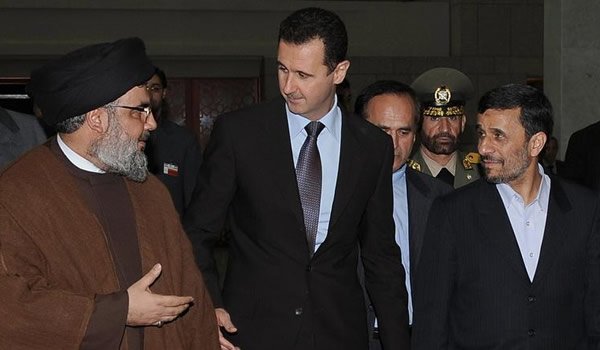
No one has any idea what the Middle East will look like next year, much less in five years — especially the revolutionary players themselves.
There are not even the old familiar fault lines this revolutionary time around. Are the Sunni Gulf kingdoms eager to support revolutionaries in Syria and North Africa? Perhaps and perhaps not — given that the fall of strongmen like Mubarak, bin Ali, Qaddafi, and Assad may lead to Muslim Brotherhood–inspired Islamist governments, which would like to see the oil-rich monarchies become less Western and more theocratic. Or — though this is less likely — if pro-Western reformist movements were to prevail, such governments would like to democratize and secularize the Gulf. Who are our best allies in breaking up the dangerous Iran-Hezbollah-Syria axis? Islamist extremists who want to kill the hated Assad slightly more than they do us — at least for now?
Who can sort out Lebanon? Does a grateful Iraq feel that Syria has been more sympathetic to its Shiite government than its Sunni neighbors have been, or is it experiencing schadenfreude that its terrorists are now doing to Syria what Syria’s used to do to Iraq? Will new Arab Islamist governments seek solidarity with the anti-Western Persian theocracy, or will they fall back into their religious and ethnic fears of Iranian Shiites?
Amid this chaos there are a handful of constants that can guide U.S. foreign policy.
The Arab Middle East will remain it its current lines, The new government in Cairo apparently wishes the release who helped plan the 1993 World Trade Center bombing,
Oil, one way or another, will still affect all strategic thinking. Over the next decade, the huge new reserves of oil and natural gas found in the U.S., Canada, and Mexico will — if fully exploited — revolutionize the fossil-fuel supplies of North America. Vastly increased daily production will allow the United States, inter alia, far more flexibility in its foreign policy, freed from fears of embargos, boycotts, and OPEC price-rigging.
Nuclear proliferation may become immune to international scrutiny. There is simply too much turmoil in the Middle East for the international community to monitor and control the spread of nuclear weapons. As Western forces leave Afghanistan, expect tensions to rise between Afghanistan and nuclear Pakistan, and between nuclear Pakistan and nuclear India. No one can figure out the politics of either an Israeli preemptive strike on Iran’s nuclear facilities, or an announcement that Iran has let off a nuclear device — other than that either development, or both, would destabilize the region even more. If Syria, the entire West Bank, Jordan, and Egypt embrace Muslim Brotherhood–inspired governments — soon a probability — we will see a return to the pre-1973 Middle East calculus, with Islamism substituting for the old pro-Soviet stance as the common creed of uniform hostility among frontline enemies of Israel. In such a scenario, the Arab states would naturally seek some sort of replacement for the lost Soviet deterrence that always ensured that, as in 1967 or 1973, an Arab setback was not quite a total defeat.
A financially troubled Europe will not repeat its Libyan escapade. Europe’s southern nations, which are most proximate to Middle Eastern unrest, are also all insolvent, increasingly disarmed, and paranoid about the sources of their energy. A non-interventionist Germany has not just the say over whether the euro zone survives, but, by virtue of its much-needed money, de facto veto power over future collective European action. Turkey is the Obama administration’s most fickle and unreliable new “ally,” distancing itself from the United States when it seeks new Islamic partners, only to beg for our cooperation when those efforts blow up in its face, as they have in Syria. not a single ally in any effort to influence Middle East change. Reset with Vladimir Putin’s Russi and China foreign relations. here will never be a U.N. resolution regarding Syria like the one regarding Libya — largely because the West stoked Chinese and Russian resentment when it transmogrified U.N.-approved humanitarian help and no-fly zones.
In short, names and faces come and go in the Middle East. So do its mass movements — whether pro-Hitler fascism, Nasserism, Baathism, Soviet clientship, or Islamism and theocracy.